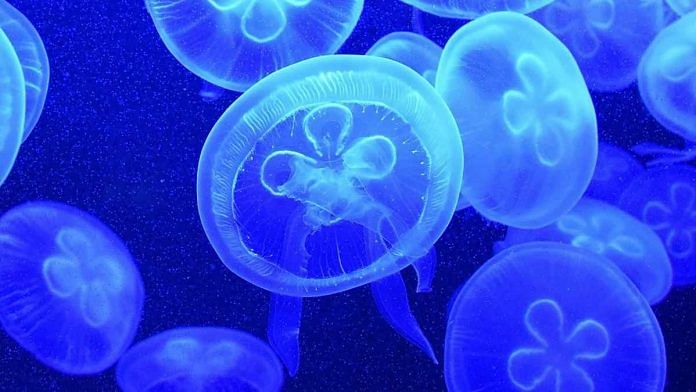Bengaluru: All multi-cellular lives are known to breathe in oxygen.
But scientists at Tel Aviv University (TAU) in Israel have just discovered a jellyfish-like parasite that doesn’t need oxygen because it doesn’t breathe. Its life is entirely free of dependency on oxygen.
The discovery, published in the journal PNAS on 24 February, was made by accident as the team was sequencing the genome of a common salmon parasite called Henneguya salminicola.
When they searched for a mitochondrial genome, they didn’t find anything. Mitochondria are organelles that trap oxygen and help to break it down to provide energy for the cell.
The discovery has enormous ramifications for not just one’s understanding of life on Earth, but also for astrobiology and one’s search for non-oxygen dependent life forms on other astronomical objects, possibly within the solar system.
Also read: Different but similar — fungi, whales, trees, humans grow the same way, study suggests
Mitochondrial genome
The mitochondria — which is remembered as the ‘powerhouse of the cell’ — came into existence around 1.45 billion years ago.
Somewhere, a large eukaryotic cell (which contains a nucleus) swallowed a smaller bacterium. The cell and the bacterium derived a mutual benefit from each other’s presence in this engulfment, and continued to remain so, in a process called endosymbiosis. They then evolved together, with the swallowed bacterium eventually becoming cell organelles, called mitochondria.
The presence of mitochondria helps in harnessing oxygen and breaking it down for energy. Then, life took a dramatic turn and erupted. Unlike bacteria, all eukaryotic cells have mitochondria. Every cell in every plant or animal contains mitochondria, which generates fuel for the cell to burn and obtain energy.
The lack of mitochondria implies that the animal does not use oxygen to function, as no other organelle or process in a cell is capable of breaking it down.
It is not entirely known how the creature (parasite) obtains energy; the scientists guessed that it does so by absorbing molecules from the salmon that already produces energy.
There are known organisms who have adapted to thrive in a low oxygen environment but until this study, whether there have been animals that don’t use oxygen has been a question that hadn’t been answered.
The parasite
Henneguya salminicola is a myxozoan cnidarian — a type of animal related to jellyfish and coral.
It consists of less than 10 cells in its being. It lives inside salmon’s muscles and leeches energy off its host. But it is not a harmful parasite — it can live the fish’s entire life inside it.
The environment inside its host is almost entirely free of oxygen. This meant that it didn’t need the mitochondria anymore once it found another way to adapt. So it dropped its mitochondrial genome entirely, so as to save energy and not copy genes for multiplication. It gave up breathing.
“Aerobic respiration was thought to be ubiquitous in animals, but now we confirmed that this is not the case,” said Dorothée Huchon, research lead and Faculty of Life Sciences at TAU’s School of Zoology, in a statement uploaded on the university’s website.
“Our discovery shows that evolution can go in strange directions. Aerobic respiration is a major source of energy, and yet we found an animal that gave up this critical pathway,” she added.
Huchon’s team was sequencing the parasite’s genome as part of the research supported by the US-Israel Binational Science Foundation, for which they had been mapping fish parasite genomes.
There have been discoveries of other species that stopped breathing, but this is the first animal. The discovery also brings into question the definition of ‘animal’ itself as breathing in oxygen is a part of it.
“It is generally thought that during evolution, organisms become more and more complex, and that simple single-celled or few-celled organisms are the ancestors of complex organisms,” said Huchon.
“But here, right before us, is an animal whose evolutionary process is the opposite. Living in an oxygen-free environment, it has shed unnecessary genes responsible for aerobic respiration and become an even simpler organism.”
It is possible that there are other animals that also live free of oxygen, or have evolved in another peculiar manner. The findings indicate that there might be many more such animals to be found that counter our understanding of life.
Also read: The greatest colonisers on earth? Plants. And this is how they did it




After reading the heading i thought that the fish actually didn’t need oxygen at all.. although it is a parasite and absorbs molecules of host… Still very nice article.. 🙂
Keep it up!!